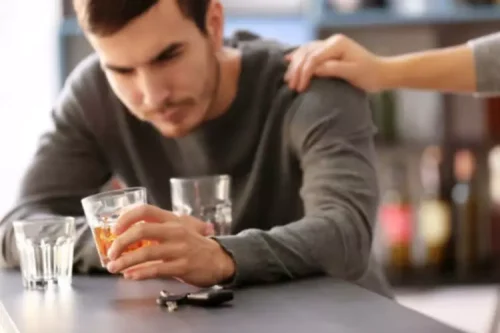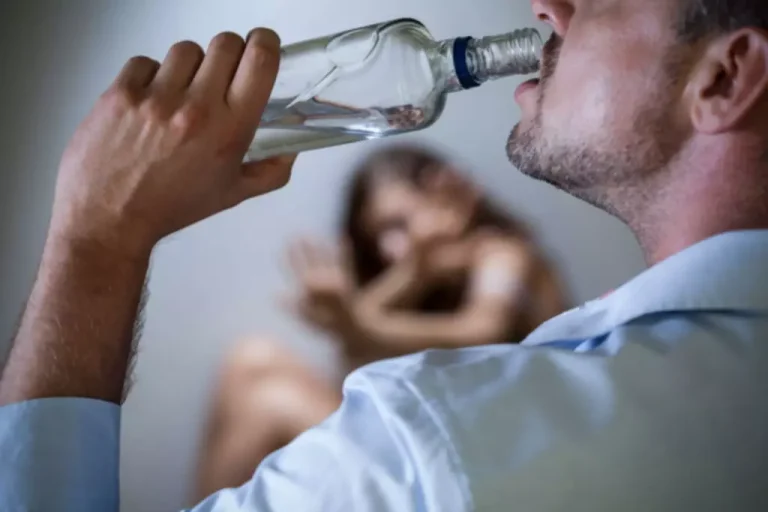
There is a higher prevalence of insomnia in people with ADHD and AUD, but consuming alcohol to manage insomnia generally worsens sleeplessness. The typical sleep cycle begins with three non-rapid eye movement (NREM) stages of sleep and ends with rapid eye movement (REM). During sleep, the body cycles through all of these stages every 90 to 120 minutes, with NREM sleep dominating the first part of the night and REM increasing during the second part of the night. Each stage is necessary for sleep to feel refreshing and for vital processes like learning and memory consolidation to occur. Treating a co-occurring disorder without treating someone’s alcohol dependency, and vice versa, can mean setting up a possible relapse before treatment has truly begun. Rarely is it the cravings of alcohol that drive those in recovery to relapse.

Medical tools and resources

Alcohol has a direct effect on circadian rhythms, diminishing the ability of the master biological clock to respond to the light cues that keep it in sync. Those effects of alcohol on the biological clock appear to persist even without additional drinking, according to research. Alcohol is one of the most commonly used psychoactive substances in the community.

Study Objectives
It is, rather, the symptoms of withdrawal taking a physical and mental toll on the person quitting that pushes them back. Insomnia is a very treatable disorder and taking the time to treat it can mean the difference between recovery and relapse. While Insomnia can lead to a dependency on alcohol, the opposite, like many mental disorders, is also true. In general, the use of alcohol can prevent someone from falling into deep sleep, which is crucial to maintaining normal brain function, physical health, and emotional well-being. The toll this takes could already cause strain to one’s life and relationships. This means that someone self-medicating spirals deeper into their dependency, turning it into a full-blown addiction faster.
How Does Alcohol Affect the Sleep Cycle?
Potential moderators and mediators of treatment outcome, including demographic, clinical, and physiological measures of alcohol dependence need to be considered to identify which alcoholic patients are most in need of adjunctive sleep treatment. This molecule has sedative properties and reduces the time needed to fall asleep 91. However, the prolonged use of alcohol, especially in high concentrations, alters the quality of sleep, both prolonging the time needed to fall asleep and fragmenting the duration of sleep 92. Finally, it is important to remember that the negative effects of alcohol, especially above recommended limits, are linked to several systemic diseases. Therefore, although perceived as a useful tool for those with sleep disorders, it can be seen as a tool that can promote the disorder itself, further increasing the risk to the health alcohol insomnia and safety of those who sleep. The results of this study are in agreement with some research showing that night workers are more likely to consume alcohol than day workers, often in a pattern of binge drinking 35,36.
- When we looked at 1.95 million RISE users aged 24 and up, we found their sleep needs ranged from five hours to 11 hours 30 minutes.
- Alcohol use and dependence appear to interfere with circadian rhythms—biological patterns that operate on a 24-hour clock.
- However, in the second half of a night’s sleep, alcohol diminishes the amount of REM sleep.
- Alcohol potentiates the effects of barbiturates and chloral hydrate, which are almost never clinically indicated for insomnia among alcoholics.
- However, the bulk of the evidence shows that alcohol doesn’t improve sleep.
How alcohol affects your sleep
To review evidence of an association between disturbed sleep https://ecosoberhouse.com/ and alcohol use. While cirrhosis scars from excessive drinking are irreversible, quitting alcohol and leading a healthier lifestyle can help your liver heal from alcohol-related liver disease. Without proper treatment, returning to alcohol use may seem to be the only solution. Taking any other substances that have a sedative effect should be avoided unless a doctor prescribes them. Doing so without medical supervision can trigger a new addiction to another substance. Alcohol dependency is rarely the only issue a person in withdrawal is dealing with.
Among substances of abuse, alcohol seems to play a crucial role in the genesis of these disorders 85,86. The interactions between alcohol use disorders, affective disorders, and sleep disturbance remain understudied, but it is clear that sleep problems in substance-using patients often have more than one cause. Whether chronic insomnia causes depression, anxiety, or alcoholism, or whether such disorders cause sleep problems, remains unclear.
Managing Alcohol Withdrawal Insomnia: Tips for a Good Night’s Sleep
Insomnia disorders are more likely to have a chronic course, to require independent treatment, and may contribute more directly to relapse during alcohol recovery. The influence of alcohol on sleep architecture is partly attributable to its ability to modulate the activity of several chemicals responsible for nerve transmission. Alcohol acts in a dose-dependent manner by interfering with the action of gamma-aminobutyric acid (GABA) and glutamate, both of which play important roles in the regulation of sleep-wake rhythms 93,94. This alcohol-mediated action may partly explain the motivation of night workers to consume alcohol as a strategy to aid the falling asleep process. The percentage of subjects with alcohol-related problems among night workers compared with day workers may partially explain the high incidence of insomnia disorder found in this group.

Why does drinking alcohol affect your sleep?
- Setting a consistent sleep schedule, creating a calming bedtime routine, optimizing your sleep environment, limiting daytime naps, avoiding caffeine, exercising regularly, and practicing relaxation techniques can help.
- Other primary sleep disorders may occur more commonly with AD and present as insomnia in the clinical setting.
- Disrupted sleep can increase the production of stress hormones like cortisol.
- Alcohol’s diuretic effects can also contribute to dehydration, as your body expels fluids faster than you replace them.
People with insomnia have an increased risk of developing alcohol use disorder, potentially because many individuals turn to alcohol as a sleep aid. For people who snore or who have sleep apnea—a disorder that causes repeated pauses in breathing during sleep—drinking alcohol tends to aggravate symptoms. How much alcohol you drink and when you drink it can both influence sleep. If you have a restless night after a drink or two, you might reach for an extra cup of coffee the next day to combat daytime sleepiness. If you’ve had a lot to drink, you might even have a hangover to contend with the next night, which won’t make sleeping any easier. Non-pharmacological therapies, such as muscle relaxation, biofeedback, cognitive therapy, stimulus control, acupuncture, yoga, meditation, sleep restrictive therapies, and sleep hygiene techniques, should be considered first (4).
UpToDate delivers evidence-based clinical decision support that is clear, actionable, and rich with real-world insights.View Source Insomnia is also very common in people who are in withdrawal or early recovery from alcohol addiction. It was also not always clearly stated that subjects were abstinent from cross-tolerant sedatives in addition to alcohol. Studies also failed to differentiate insomnia symptoms from an insomnia disorder, which is characterized by the additional burden of daytime impairment and/or psychological distress attributable to the sleep problems.
